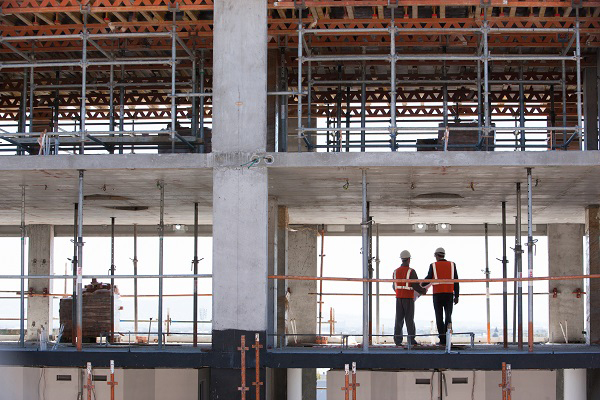You are viewing 1 of your 1 free articles
 Joanne Roney OBE
Joanne Roney OBEMaking modular work in Manchester
Modular housebuilding is appealing, but also very challenging. Joanne Roney explains how Manchester City Council is trying to get it to work
The national undersupply of homes isn’t a new story. It is one of the key housing issues of our times.
The causes of this undersupply are as many and varied as the elements required to build a new home – from land availability and funding streams (or lack thereof), to affordability and access to the end product.
In Manchester we have always tried to think laterally and develop innovations that have helped to keep the pipeline of new homes flowing, especially during the economic downturn.
For example, we were the first council to partner with a pension fund (Greater Manchester Pension Fund) and create a joint venture using council land to deliver affordable homes, which helped hundreds of people get on the housing ladder.
A further phase is due to go to procurement imminently.
“We know traditional build methods cannot achieve the pace and density required to satisfy our expected shortfall.”
One product that has always seemed very appealing to us is modular homes. The opportunity to build at a price lower than traditional build methods, with a significant cut to delivery times, and impeccable build quality is the holy trinity councils are looking for.
We know traditional build methods cannot achieve the pace and density required to satisfy our expected shortfall, and offsite manufacturing offers unrealised potential to overcome these barriers.
After all, modular is common abroad. Northern Europe is famed for using these techniques, and the American market is not far behind.
However, as with all things far too good to be true, the challenges of modular are greater than hoped.
Since the middle of 2015, Manchester has been in a knowledge transfer partnership with the University of Salford to bridge the knowledge gap and make modular a genuine alternative to traditional build methods.
In Manchester we need to build homes quickly to meet our housing demands linked to our fast-growing population. However, we also lack large supplies of available land, and the opportunities that the council can bring forward are largely smaller infill sites.
“The challenges of modular are greater than hoped.”
Early on in the knowledge transfer partnership it became obvious that modular manufacturers were going to struggle to beat traditional build costs for affordable two-storey family homes at lower density sites – precisely our requirement.
It’s clear that efficiency savings in the modular process are possible. But to realise significant savings, offsite manufacturing needs to be at volume, which requires larger investment and available land.
Site specifications must also be taken into account. Abnormal wide load access is essential both to access the site and to journey from the manufacturer – which is probably why modular is successful in the US, where wide-berth highways are the norm.
“To realise significant savings, offsite manufacturing needs to be at volume, which requires larger investment and available land.”
Crane access and enough site space to allow crane operations is also an obvious requirement – so closed-in sites, with overhead power lines, are probably unsuitable for this build method.
However, if workable sites are available and necessary funding is in place, there are a number of manufacturers that have shown huge potential – reporting reduced costs, design specifications that largely exceeded traditional products, and homes which were robust and performed much more efficiently.
Building at scale using the modular method would mean we wouldn’t stumble at viability, and subsidies to create genuinely affordable units would be a significantly lower than those required at traditional build projects.
For us the biggest barrier is finding a product that allows us to use all our available land – regardless of size – and still beat the price points of traditional build methods.
Perhaps government could rethink funding options that would help realise the potential of modular building, or perhaps support fledgling modular manufacturers – of which there are quite a few – to upscale more quickly in a bid to reduce unit costs.
We remain optimistic and we certainly haven’t given up. We feel confident that the pros can outweigh the cons if the right site is chosen and planning for the project is done carefully.
In fact, we are currently working with a relatively new company whose ethos is to help solve the UK’s housing crisis using modular technology, reducing build times from several months to just a few weeks.
For now, we look forward to seeing the finished test home.
As in all major cities, we need new housing and quickly, but only the highest quality product will be a genuine replacement for traditional builds – but we live in hope that there’s a solution out there that we’ve all been waiting for.
Joanne Roney, chief executive, Manchester City Council











